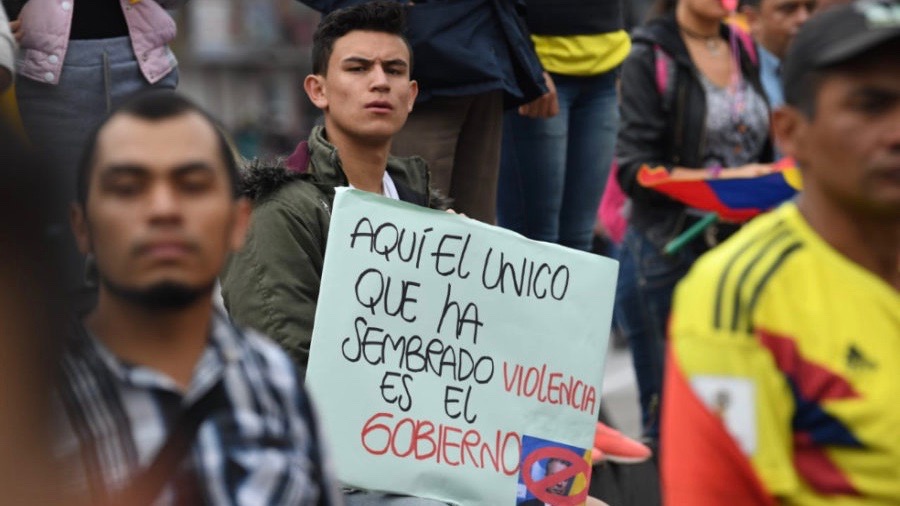The massacres and assassination of social leaders in Colombia did not end in 2020. The violence and humanitarian crisis continues into 2021. On January 10, human rights organizations denounced that two massacres took place and two social leaders were assassinated.
The first massacre of this year was registered in the Florencia municipality, in the Caquetá department. At around 2 am, two unidentified armed men entered a cockfighting pit in the Tres Esquinas sector and indiscriminately fired at those who were inside the premises. In the incident, three people were killed and seven others were wounded. Two of the wounded men are in serious condition.
The second massacre occurred in the Betania municipality, in the Antioquia department. At around 4 am, three armed men entered a home and murdered three people from the same family.
On the same day, the Network of Social and Peasant Organizations of Northern Antioquia (REDOSC) denounced that peasant leader, Alfredo García, was assassinated by armen men in the Ituango municipality, in the Antioquia department. García was a member of the Ituango Peasant Association (ASCIT) and had been threatened by paramilitary groups, who accused him of belonging to the demobilized Revolutionary Armed Forces of Colombia (FARC) guerilla group.
The same day, local media reported the discovery of the body of community leader, Edwin Antonio Indaburo, in the Cauca river. Antonio was abducted two days ago by paramilitaries along with another man, during a paramilitary raid in the locality of Buenos Aires Island, in the Cáceres municipality, in the Antioquia department.
Additionally, two minors lost their lives after stepping in on a landmine in the Policarpa municipality, in the Nariño department.
https://twitter.com/Indepaz/status/1348349670297317376?s=20
Throughout the day, numerous social and human rights organizations and activists on social media networks denounced these events and the persisting paramilitary violence in the country. They called on the national government to safeguard the population living in the areas affected by paramilitarism.
https://twitter.com/Tati_Ramirez/status/1348439808025260036?s=20
Colombia has been witnessing a major increase in political violence and systematic extermination since the far-right president Iván Duque took office in August, 2018. It is evident in the alarming number of assassinations and massacres recorded in the past couple of years. According to a report by the Institute of Development and Peace Studies (INDEPAZ), released on December 15, 2020, since 2016, 1,090 social leaders and human rights defenders have been assassinated, and 63% or 695 of these assassinations occurred under the rule of president Duque.
Reports by INDEPAZ also indicate that despite the lockdown due to the coronavirus pandemic, in 2020, violence actually increased. In 2020, 310 environmentalists, human rights defenders, indigenous, peasant and social leaders, and 64 ex-combatants of the FARC were killed. The organization also reported that around 375 people were killed in 90 massacres registered in the country last year.
The situation of violence, which was supposed to improve after the signing of peace agreements between the national government and the FARC in 2016, has worsened after their disarmament. There is a significant expansion of paramilitary and drug trafficking groups in the areas where the FARC had control previously. Additionally, the former combatants of the FARC and their family members, who are in the reincorporation process, have been constantly attacked by the right-wing paramilitaries. Up until today, 252 ex-combatants have been assassinated.
Various social, indigenous and human rights organizations as well as opposition political parties have been constantly denouncing Duque’s administration for its lack of will to implement measures to stop these acts of violence and dismantle the illegal armed groups operating in the country. They have also been condemning the national government’s campaign of stigmatization and criminalization of those who take part in social protests, because it normalizes violence against them.





